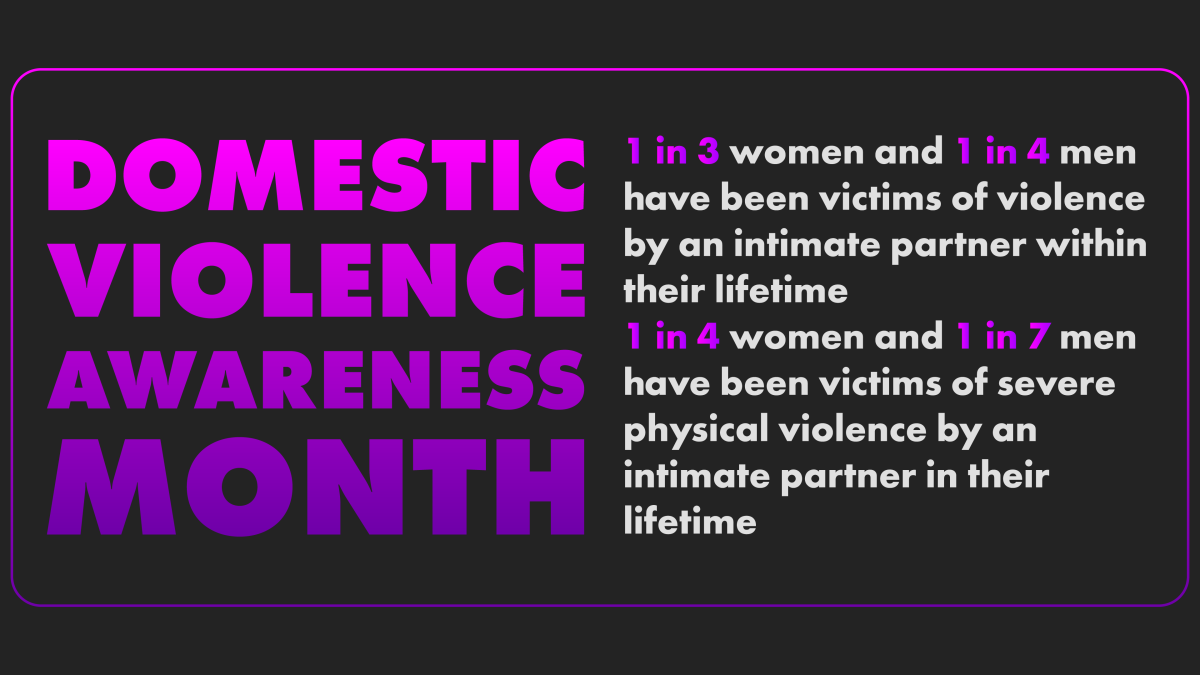Throughout the month of October, the NC State Women’s Center will be holding events and raising awareness of the different forms of domestic violence found on college campuses for National Domestic Violence Awareness Month.
Janine Kossen, associate director of the Women’s Center, described the importance of recognizing National Domestic Violence Awareness Month on NC State’s campus.
“We know that [domestic violence] is a tremendous issue and a lot of people experience domestic and dating violence, which is no different on college campuses,” Kossen said. “It is a time to really raise awareness around the prevalence and incidence of domestic and dating violence, and most importantly, how can you seek support if you’re ready to seek support and how can your friends, colleagues and family members support you in that process.”
According to Kossen, the Women’s Center holds over a dozen events throughout the month, like discussion seminars and Lunch and Learns, to reach a broader network of people and appeal to the wide variety of learning styles on campus.
“We’re trying to recognize that people have different needs across campus,” Kossen said. “Some people prefer one-on-one or workshops, some people prefer more passive, so we’ve tried to look at a wide variety of learning styles.”
Kossen said nearly one in three college women say they have been in an abusive dating relationship. Additionally, there are reports of dating violence in 30 percent of identified LGBT+ youth relationships and nine percent in heterosexual youth relationships.
“This is definitely an issue that shows up on campus, which is why we do a lot of prevention education around what healthy relationships and unhealthy relationships looks like, how we can educate the community about bystander intervention and how can we support survivors,” Kossen said.
A resource on campus advised by the Women’s Center is The Movement Peer Educators, a group of students who conduct peer-led workshops throughout the year. The organization is dedicated to educating their peers on interpersonal violence and advocating against it.
“During this month they will be doing peer-led workshops here in the Women’s Center on supporting survivors, and then also on healthy relationships,” Kossen said. “… So what are the warning signs, the red flags, how do you know what is healthy and not healthy, how do you intervene when necessary or how do you make choices about that.”
Kat Kirby, a fourth-year studying women’s and gender studies, has been involved with The Movement Peer Educators for the past two years and is currently co-president of the organization.
“I think that it is important to highlight that this is an issue that is impacting our campus,” Kirby said. “Students should take note of it and know what the signs are in order to be able to help their friends.”
According to Kirby, The Movement Peer Educators currently have a total of around 35 to 40 peer educators, after gaining about 25 new recruits this semester.
“I think with the #MeToo movement and everything that is happening in the news lately that people are really wanting to use their voice to do something impactful for the community at NC State, and so I really think people are looking for ways to do that,” Kirby said.
Students who are interested in becoming a peer educator can email Carlyn Wright-Eakes at cawrigh7@ncsu.edu. An application process will be taking place closer to December for those interested in joining the team this spring semester. Once successfully recruited as a peer mentor, students will need to complete two hours of training a week for a consecutive six weeks.
“[The training] makes sure you are prepared for any kind of questions that come up and makes sure you have an understanding of domestic violence, sexual assault and the ways that those impact people,” Kirby said.
Because a college campus isn’t the typical “domestic setting,” many students fail to recognize just how a big of an issue domestic violence is on campus. Kirby addressed a common misconception that helps explain why students feel this way.
“Domestic violence doesn’t technically mean married or interrelationship,” Kirby said. “It can be you and your friend who don’t have a really healthy relationship. There may be yelling, fighting, physical abuse or emotional abuse.”
The Women’s Center provides a number of resources to survivors, including accompanying students to counseling students or legal services. They also help to accommodate students with their academics, work or housing situations.
“We know trauma manifests in different ways for different survivors, so a lot of what we see is student survivors having trouble making it to class, struggling with anxiety, depression, PTSD or having trouble eating or sleeping,” Kossen said. “If they need to get an extension on an assignment or excused absence or anything of that nature, we can work with the faculty to help get those accommodations put in place under Title IX.”
Kossen wants to make sure that those who are looking for support know that the Women’s Center works as survivor advocates, not investigators.
“We are not here to ask you a bunch of questions; we come from a trauma-informed lens,” Kossen said. “Our role is to meet you where you’re at, so if you want to come in and you’re ready to talk, we are ready to listen.”
For more information about upcoming Domestic Violence Awareness Month events, click here.
If you or someone you know is experiencing relationship violence, sexual violence or stalking and are in need of advocacy services, the Women’s Center has advocates available from 9 a.m. to 5 p.m. Monday-Friday in Talley Student Union, Room 5210. After hours, please call the 24/7 Sexual Assault Helpline at 919-515-4444 to be connected with an advocate.








